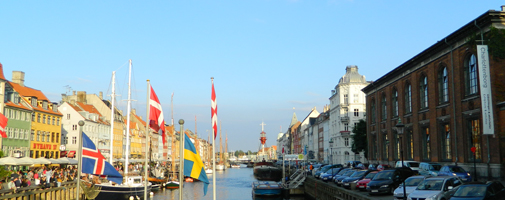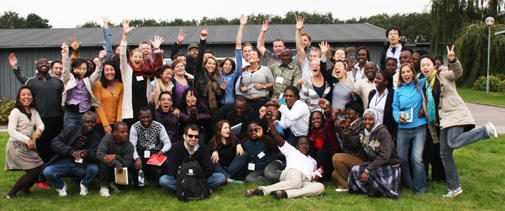Student life
Below we have collected some information on what the everyday life is like for a Master of Disaster Management student in Copenhagen. If you are already enrolled in the programme you can also find useful information on our student services website.
Campus
The majority of the teaching takes place at the campus called Centre for Health and Society (often referred to by its Danish abbreviation CSS). It is located in central Copenhagen – just between the Botanical Gardens and the Sortedams Lake.
CSS is placed in a building complex from the 1860s that used to house a hospital. With bright rooms and cosy outdoor areas this location offers attractive and inspiring place to study.
The Master of Disaster Management students share the campus with students from the MSc in Global Health programme as well as BSc and MSc students from the Departments of Anthropology, Sociology, Political Science, Public Health, Economy, and Psychology.
The teaching
The teaching at the Master’s programme consists of lectures, discussions in class, facilitated group work, exercises and institution visits. Learning methods include non-facilitated group work, oral presentations and written assignments. Furthermore, students must devote time to preparatory reading outside of class.
All classes are taught in English and all assignments and exams are conducted and written in English.
Classes usually take place on weekdays between 9:00 and 15:00 or 16:00.
Workload
All courses forming part of our Master’s programmes are highly intensive and students are expected to be actively engaged. This requires daily attendance in class as well as being well prepared.
The programme consists of 60 ECTS which equals a full time study load for one year.
The courses usually have at least one study day every week without lectures, where students have time to prepare for classes, meet in study groups or attend to their work.
On our Student Services website you can find information about holidays.
Living costs
A rough estimate of some expenses for a single person living in Copenhagen:
Accommodation: DKK 5,500 to 7,000 per month
Food: DKK 2,000 to 2,500 per month
= DKK 7,500 - 9,500 per month
Books, printing and study materials: DKK 2,000 to 3,000 for the year
A typical Danish student lives for around DKK 7,000 - 9,000 a month.
The Danish currency is called Krone (DKK) and the approximate exchange rates can be found here.
Numbeo.com has a useful page with prices in Copenhagen, Denmark.

Your fellow students
Students from all over the world and from many different cultural backgrounds are admitted to the Master’s programme. In addition, some have been away from academia for a long time but have many years of experience while others have just recently left university or other educational institution.
The diverse mix of nationalities, cultures, educational and professional backgrounds create an interesting and inspiring academic atmosphere with opportunity for valuable discussions and making friendships and professional relations with many different people.
The diversity of the group of students may also cause some difficulties when students engage in group work. However, it also provides an important learning experience, as most workplaces in this field require you to work interdisciplinary with colleagues who have different academic and practical approaches.
Our experience is that even though you are taking part in a challenging and intensive study programme, you also find time to build close and lasting friendships, giving the graduates a worldwide network of professionals that can be an important help in your future career.

Remember that you can find much more information about being a student in Copenhagen on our Student Services website.
If you have any other questions you are of course welcome to contact the Admissions Office.
